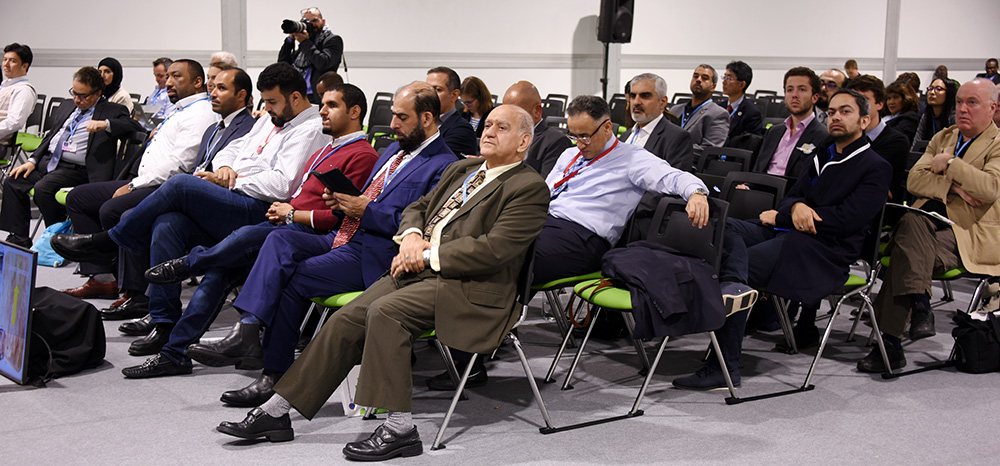Summary
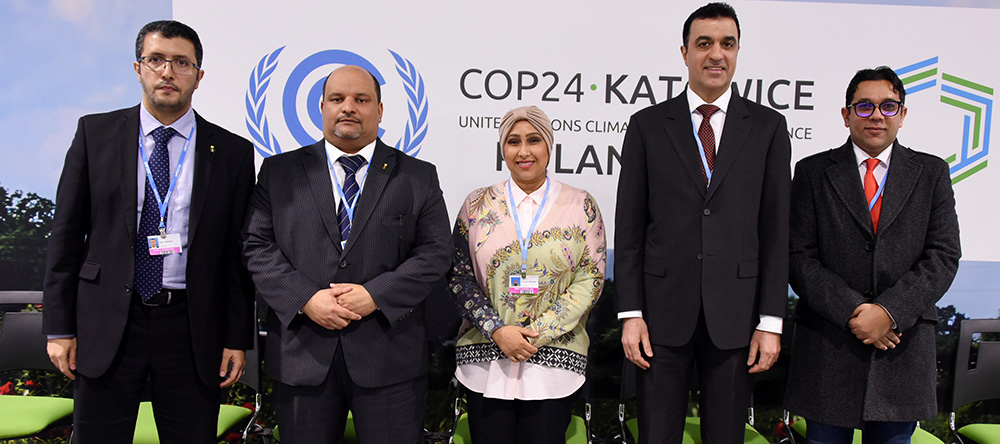
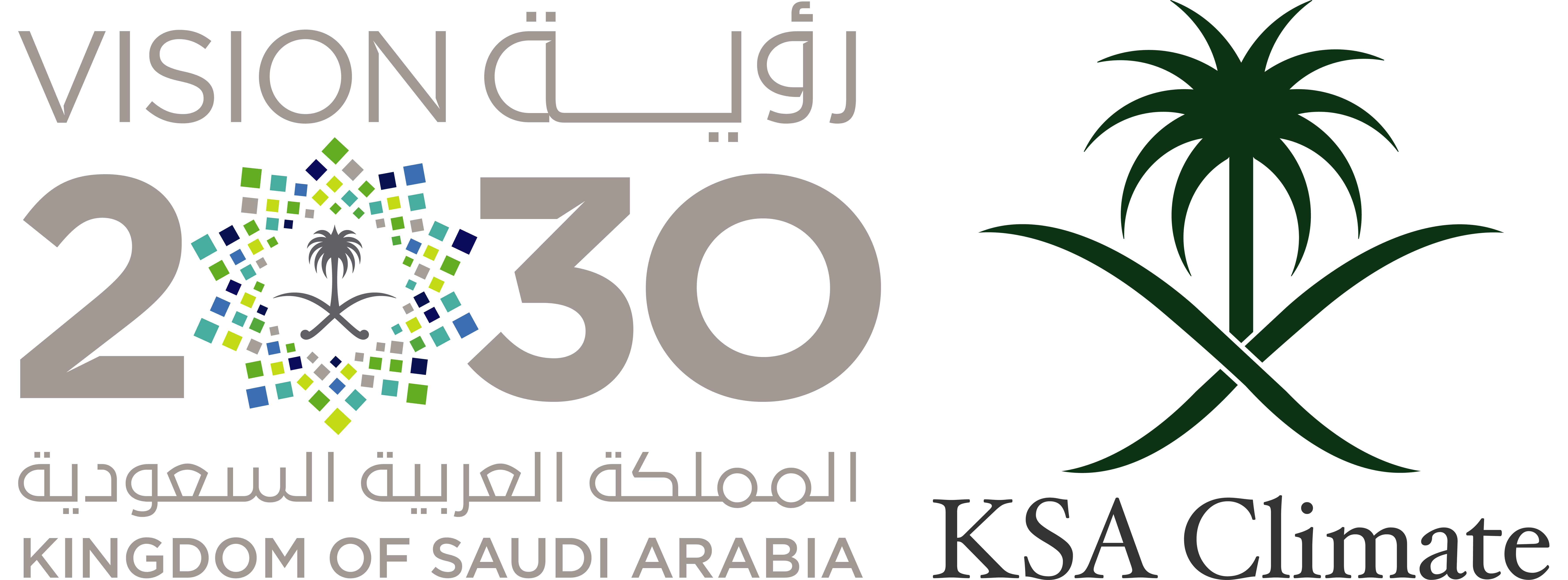 IISD Reporting Services, through its ENB+ meeting coverage, is providing coverage of selected GCC Pavilion events at the Katowice Climate Change Conference - December 2018, including written, digital and video coverage.The following events were covered by IISD Reporting Services on Monday, 10 December 2018:
IISD Reporting Services, through its ENB+ meeting coverage, is providing coverage of selected GCC Pavilion events at the Katowice Climate Change Conference - December 2018, including written, digital and video coverage.The following events were covered by IISD Reporting Services on Monday, 10 December 2018:
Photos by IISD/ENB | Natalia Mroz / Diego Noguera
For photo reprint permissions, please follow instructions at our Attribution Regulations for Meeting Photo Usage Page
R&D for Climate Solutions
Presented by the Kingdom of Saudi Arabia
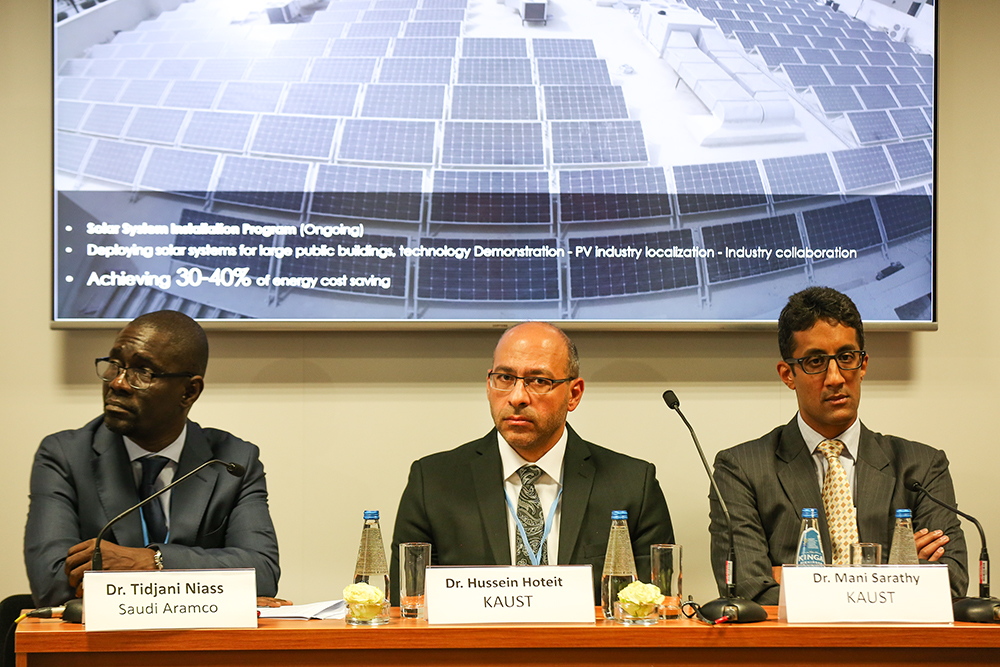
This side event focused on research and development (R&D) approaches for mitigating climate change in a low-carbon fossil fuel-based economy in the Gulf Cooperation Council (GCC) region. During the event, panelists presented on the work of clean combustion technologies that valorize CO2 and carbon capture, utilization and storage (CCUS) as an effective method for enhanced oil recovery (EOR).
Moderator Tidjani Niass, Saudi Aramco, opened the event, highlighting the importance of R&D activities in promoting energy efficiency and climate mitigation efforts in the GCC region.
Mani Sarathy, Clean Combustion Research Center (CCRC), KAUST, emphasized the global shift from dirty to clean fuel in the automobile sector and producing clean energy with less CO2 emissions, and presented on the R&D of clean combustion technologies that valorize CO2. Saying that “the best companies want to be innovative, but cannot do it alone,” he pointed to the important role that R&D organizations play in this field, noting the establishment of the Clean Fuel Consortium and Clean Combustion Research Center in Saudi Arabia. Saying that the CCRC’s mission is to create zero carbon combustion technology, he outlined KAUST’s efforts on: improving science-based methods to lower CO2 emissions, including computer-aided engineering; strengthening collaboration with industrial partners, including Saudi Electricity Company, Saudi Aramco R&DC, the Boeing Company, General Electric, Volvo, McLaren Racing, Farabi and Doosan; and burning renewable fuels and hydrogen carriers as chemical energy. Sarathy concluded by emphasizing that improving combustion engines is “not dead,” highlighting that KAUST has demonstrated success in fuel and engine technology deployment, and its upcoming 3.5 year programme to develop very high efficiency engine technologies in 2019.
Mohammed Al-Shamsi, King Abdulaziz City for Science and Technology (KACST), presented on KACST’s R&D efforts on addressing climate change issues, including renewable energies, energy efficiency, and mitigation and adaptation technologies. He spoke about KACST’s work on solar panel production lines and solar panel installation in various places in Saudi Arabia, including through: solar energy capture from the roofs of several public buildings such as schools, achieving 30-40% of energy cost savings; and a water desalination plant powered by 20MW solar energy to reduce the cost of water production. He then stressed that destructive weather, such as sand storms and an arid environment, has been a challenge to maintain these efforts. Al-Shamsi highlighted KACST’s work to overcome these challenges by developing dust-repellent surfaces by coating materials containing SiO2 particles and nano-coating for energy efficiency glass. He also pointed to the uses of metal organic frameworks (MOFs) to selectively seek and separate carbon dioxide as new climate technology, and said the use of solid MOF saves over 90% of energy usually required to separate CO2 using the traditional amine solutions. He noted recent inventions at KACST related to mitigation and adaptation to climate change, including hydrogen production from heavy oil for fuel cells, and CCUS.
Hussein Hoteit, Ali I. Al-Naimi Petroleum Engineering Research Center (ANPERC), KAUST, presented on lessons learned from, and challenges and opportunities for, Saudi Arabia’s CO2-EOR work. Noting that fossil fuels remain a dominant source of energy, he said that current predictions of CO2 emissions growth is far in excess of what is needed to meet the goals of the Paris Agreement. He stressed the CCUS, among other technologies, as a potential viable solution in addressing greenhouse gas (GHG) emission challenges. He outlined KAUST’s work on CO2 injection in oilfields, which has been recognized as an effective method for EOR. Hoteit said lessons from CO2-EOR provide potential opportunities such as: boosting oil recovery by 5-15%; extending the life of oilfields by 25 years; and reducing CO2 emissions. He also noted challenges remained, including the need for major front-end investment and facility upgrades such as recycling plants, and for addressing significant CO2 cost and low oil sweep efficiency. He then suggested developing Saudi Arabia’s National CCUS Roadmap, which contains a CCUS vision, regional CO2-EOR initiatives, industry-academia engagement in research and a competitive fund programme. He concluded by highlighting the importance of promoting CCUS as a win-win technology for climate mitigation by reducing CO2 emissions while creating business opportunities.
In the ensuing discussion, participants considered: potential innovative combustion technologies in R&D organizations; the need to address environmental effect, including water leaking; the difference between nitrogen and CO2 injection technologies; and the challenge of addressing high cost of CO2 capture.
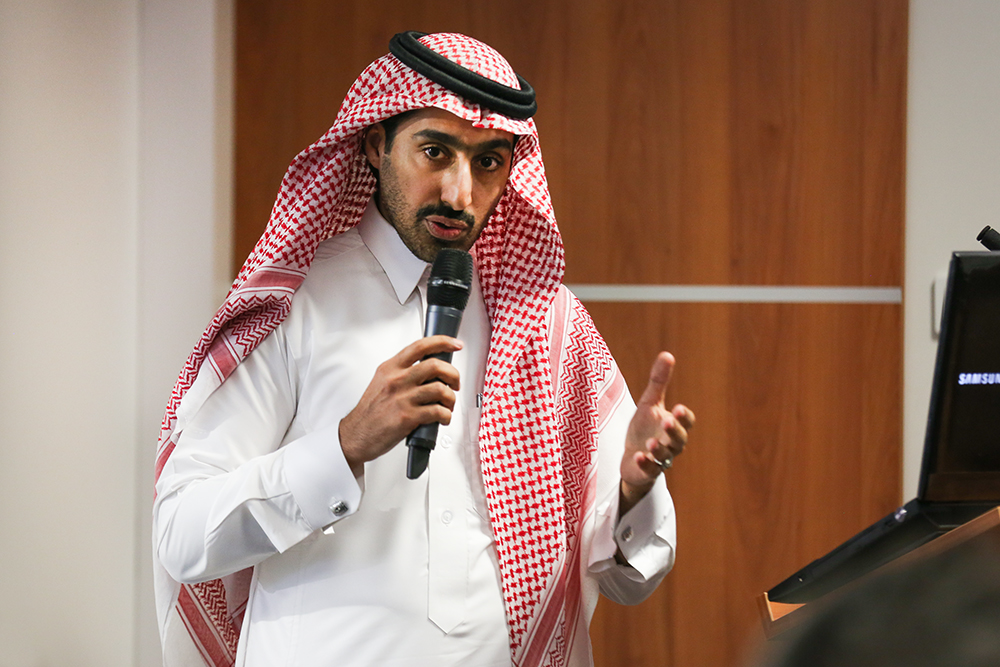
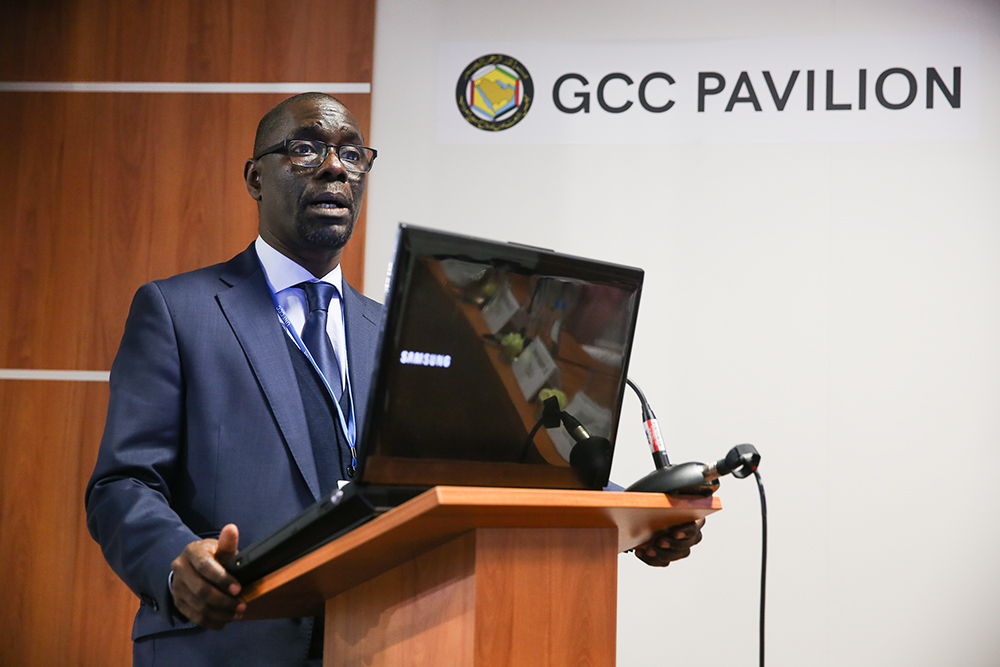
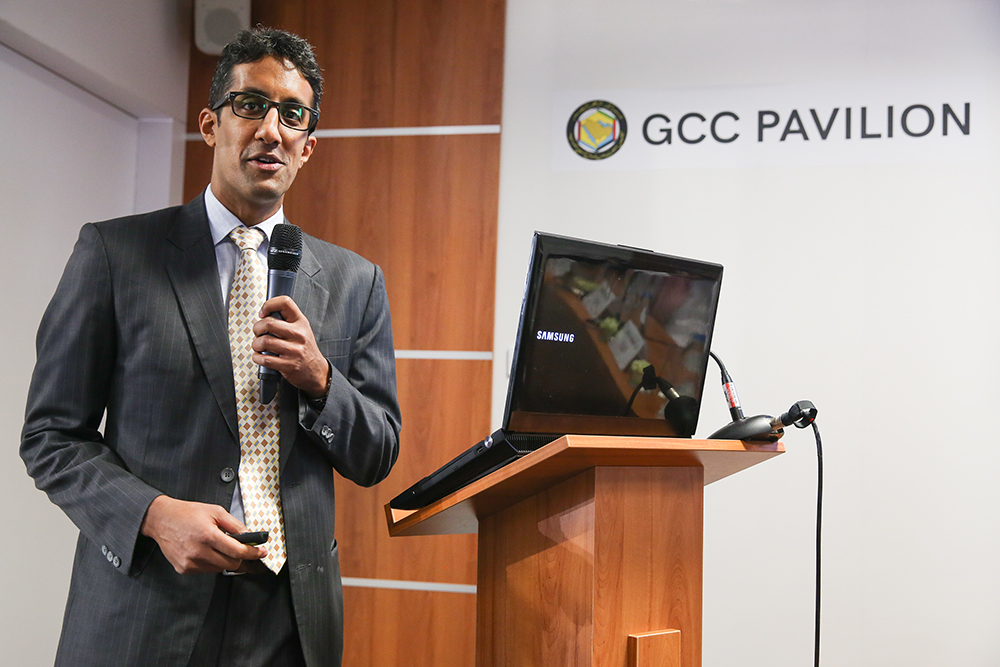
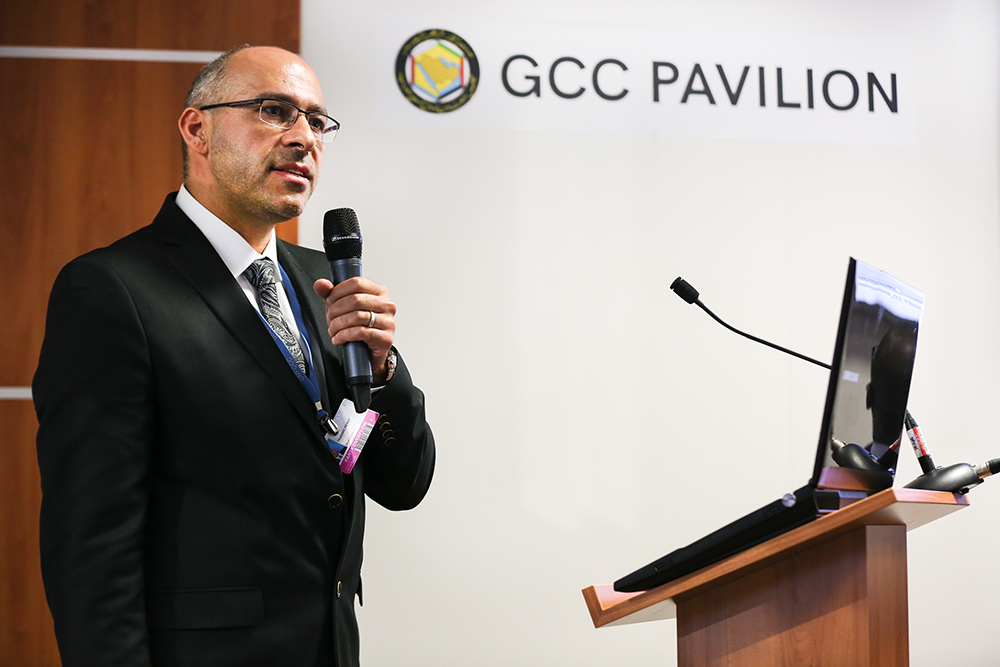
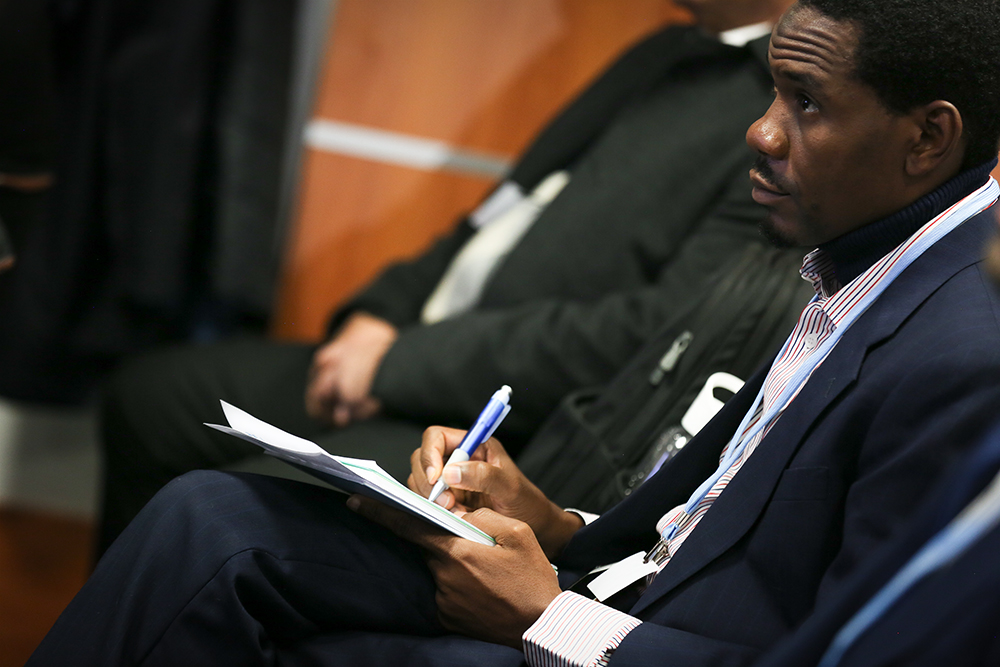
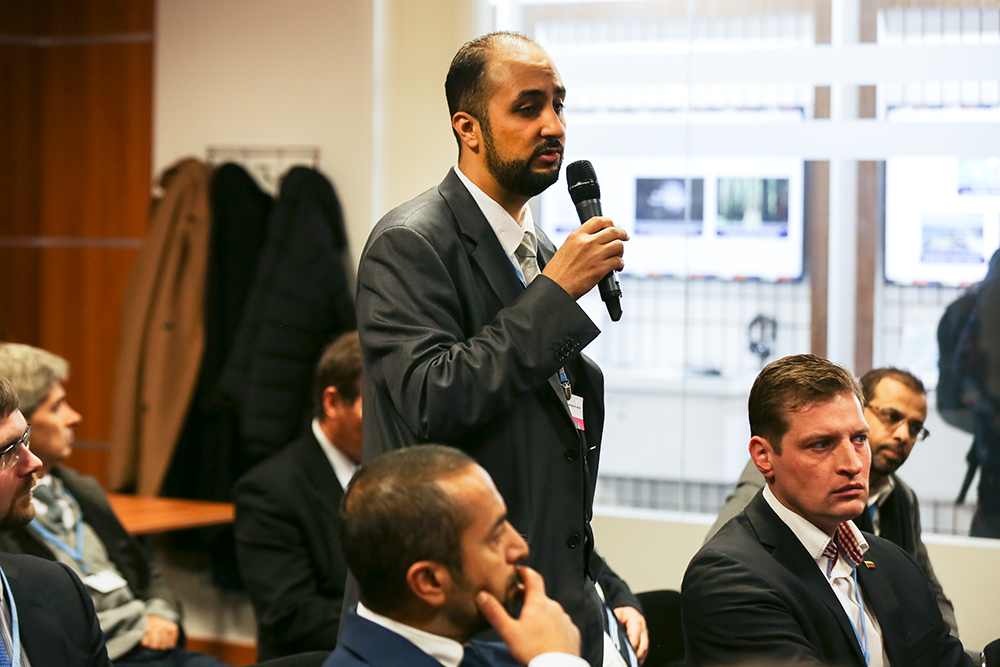
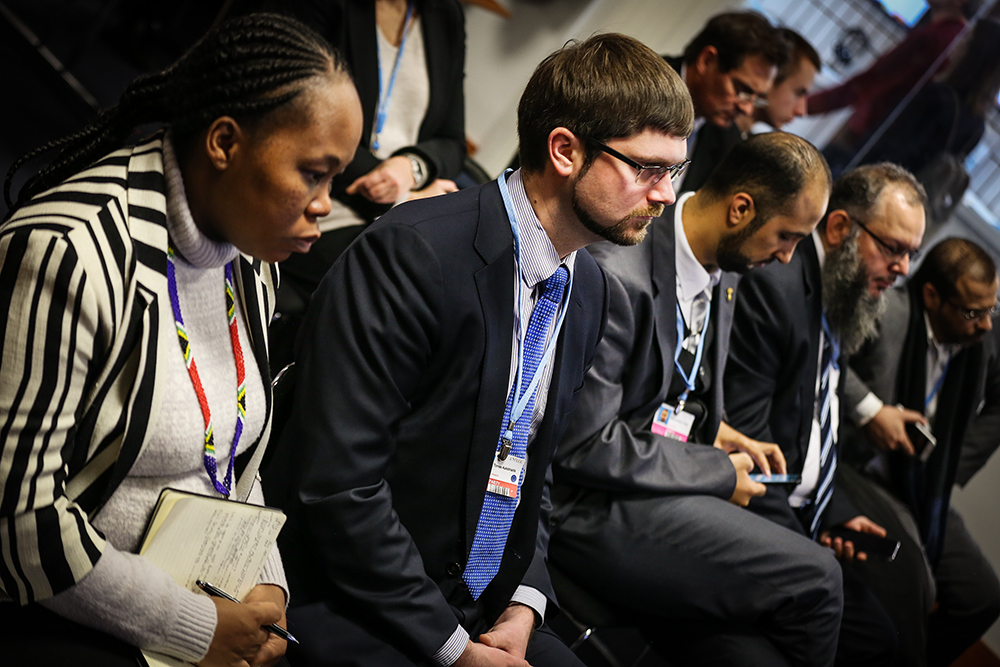

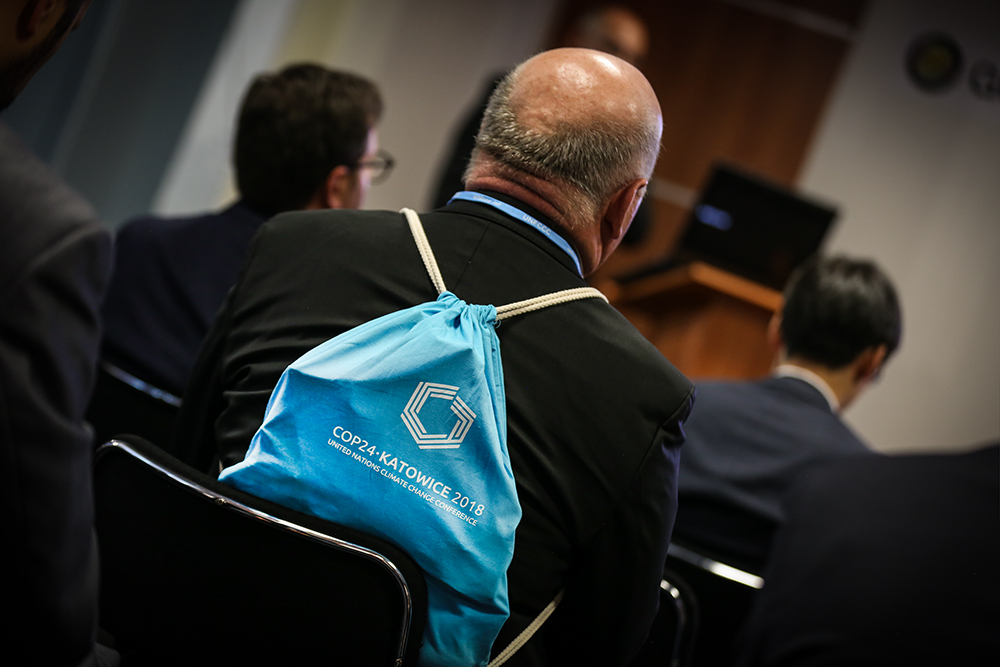
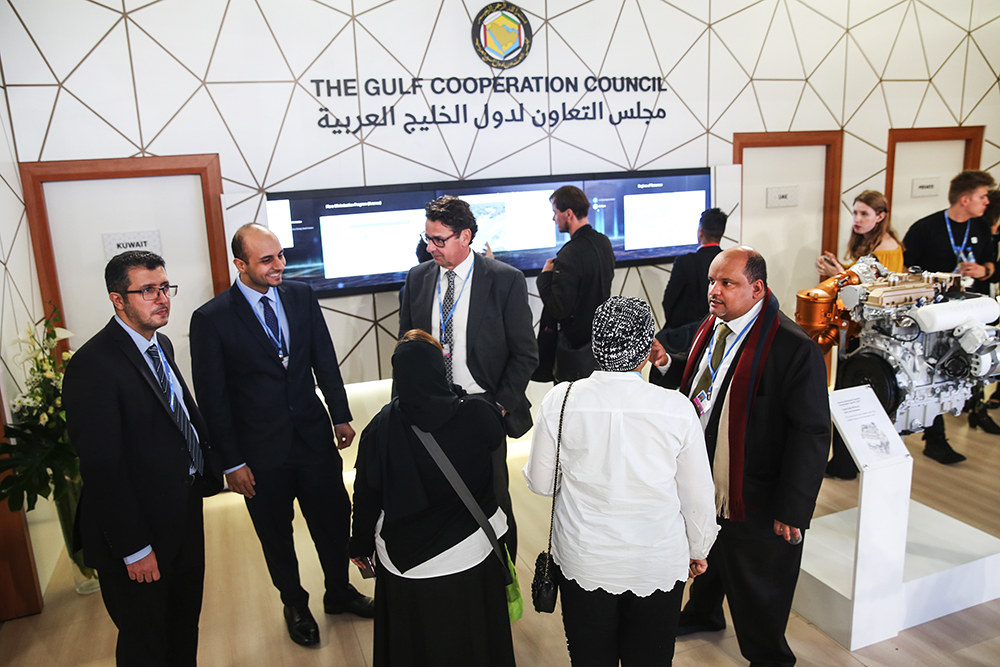
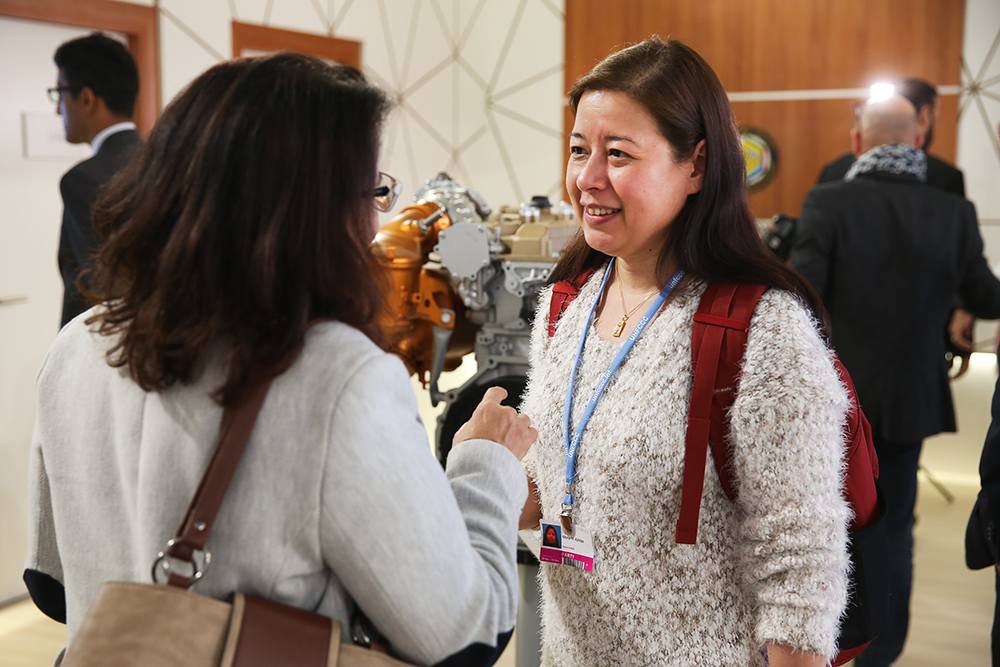
Oil & Gas Technology to Address Climate Change Challenges
Presented by the Kingdom of Saudi Arabia and the Organization of Arab Petroleum Exporting Countries (OAPEC)
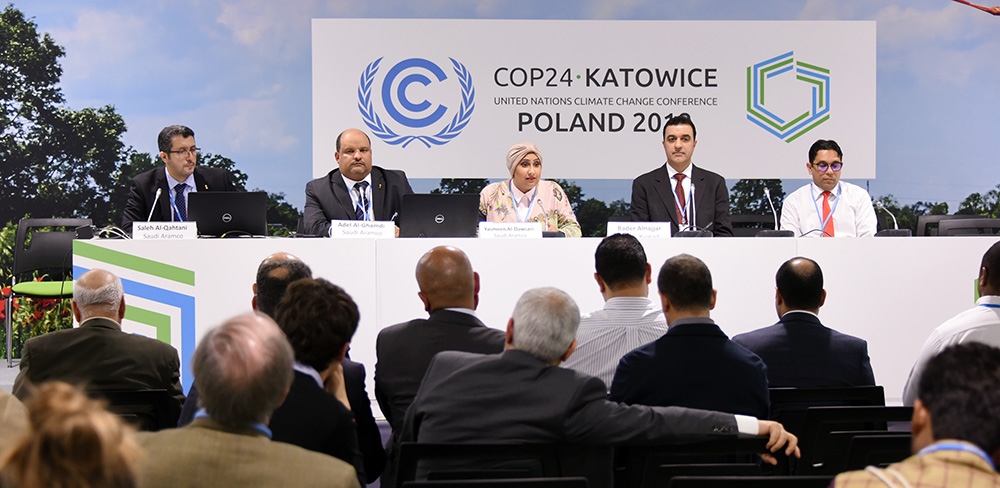
Posted by IISD Reporting Services on Wednesday, 12 December 2018
This side event, moderated by Saleh Al-Qahtani, Saudi Aramco, featured four speakers from oil production and regulation entities across Arab petroleum-exporting countries. Presenters addressed proposals and initiatives based in oil and gas technologies to address the many challenges posed by climate change, as well as to help build efficiencies and resilience in oil and gas production.
Adel Al-Ghamdi, Saudi Aramco, presented his company’s Flaring Minimization Program from a historical lens, stating that the programme has significantly reduced greenhouse gas (GHG) emissions. He focused on the issue of gas flaring, where flare stacks burn planned amounts of methane and release it into the atmosphere as CO2. He said that the Program’s first phase was the “Master Gas System” phase, which took the gas captured by Saudi Aramco that reduced flaring occurrence to “emergency” situations only. Following this phase came the installation of the “Corporate Flaring Roadmap,” which is a flaring monitoring programme to measure, monitor, mitigate and manage flaring through corporate Key Performance Indicators (KPIs). Finally, he noted that the “Near-Zero Flaring” programme has deployed technologies to reduce flaring from raw gas production from 1% to 0.5% since 2011, and has been patented and made available to other extraction companies.
Yasmeen Al-Dawsari, Saudi Aramco, presented on the ways Saudi Aramco aims to generate profit from CO2 extracted through carbon capture, utilization, and sequestration (CCUS) mechanisms. She argued that, since hydrocarbons must remain part of the global energy mix during the transition to renewables, it is necessary to “strategically create value” from CO2 through such techniques as: CO2 polymerization and mineralization to create materials; the creation of profitable fuels and chemicals; and using it as a working fluid in the place of steam. She also outlined plans for mobile CO2 capture, presenting a proof-of-concept vehicle, which has captured 10% of its emissions. She pointed out that Saudi Aramco’s work on CCUS has led to various scientific and research collaborations with the US as well as with other international partners, which have generated contributions to international journals.
Bader Alnajjar, Kuwait Oil Tanker Company (KOTC), presented on the challenges of environmental protection facing the shipping industry in the area of climate change. He emphasized that the effects of climate change are international and that KOTC has its own contributions to make to the challenge of emission reductions. He argued that shipping remains an economical way of transporting goods around the world, with CO2 emissions from international shipping equal to3% of global emissions. Saying that “we are going to protect the environment because it’s our responsibility,” he pointed out that KOTC fully complies with International Maritime Organization efficiency regulations. Showing examples of how KOTC attempts to exceed these regulations, he discussed initiatives for energy efficiency improvement, including: optimizing engine systems and friction drag on ships; modifying propeller systems for better hydrodynamic efficiency; and installing sophisticated emissions monitoring equipment.
Hussain Makki, Bahrain’s National Oil and Gas Authority, presented on “Petroleum Sector Efforts to Meet the Climate Change Issue.” He highlighted that Bahrain’s economic planning emphasizes economic diversification and though the country produces 13.5 million tonnes of oil per year, it exports 88% of its petroleum products. He also alerted participants to the discovery of shale oil and shale gas in the Khaleej Al Bahrain Basin. Makki discussed Bahrain’s GHG mitigation strategy, including investing in high-tech initiatives and transitioning to an energy mix that includes renewable energy. He announced that Bahrain will host the first Middle East CCUS Conference and Exhibition in 2019. He concluded by noting the myriad of climate-related impacts likely to affect Bahrain if climate change is not mitigated, including coral bleaching, mangrove forest decimation and biodiversity concerns, and highlighted efforts to restore mangroves in the area.
In the ensuing conversation, panelists and participants discussed the role of oil and gas in the global energy mix, and the levels of progress for CCUS technologies. Responding to a question about the ethical justification for the continued use of hydrocarbons in light of the Intergovernmental Panel on Climate Change’s latest reports, panelists could not comment on behalf of their respective governments, but asserted that they continue to support the production of oil and gas as part of the global energy mix.
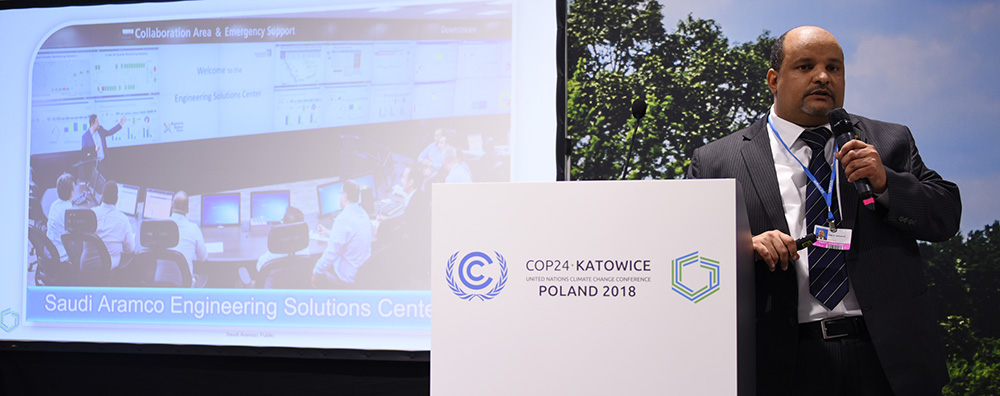
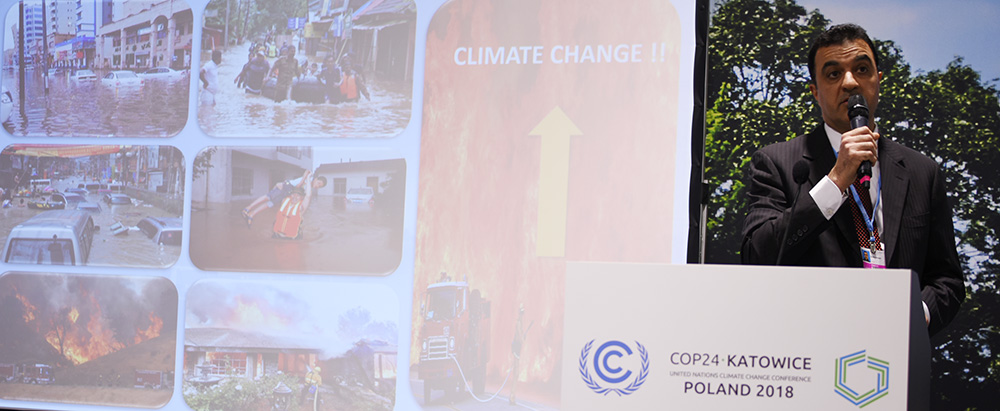
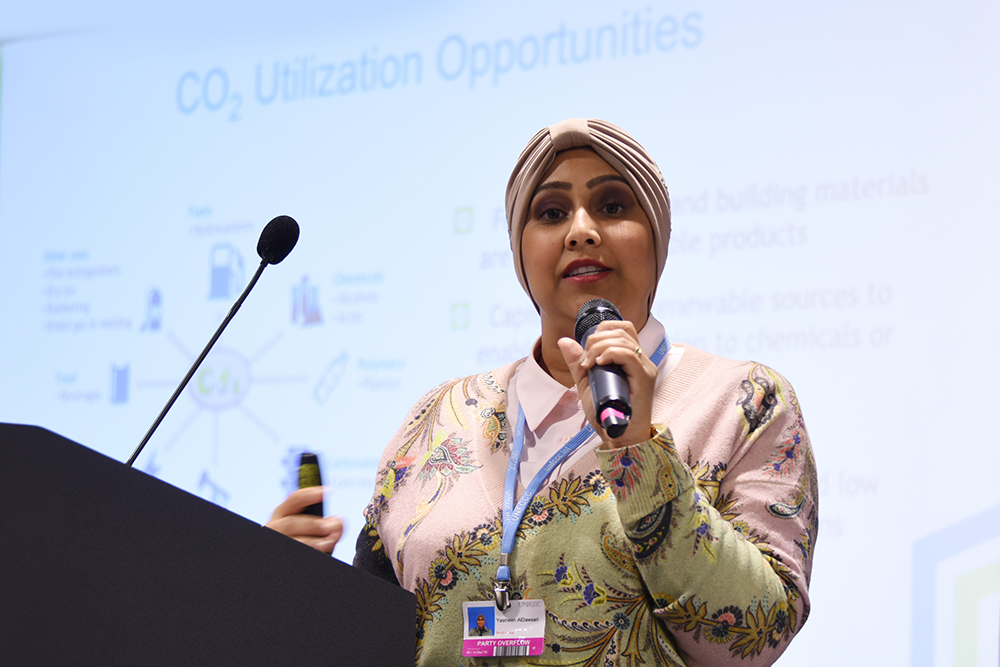
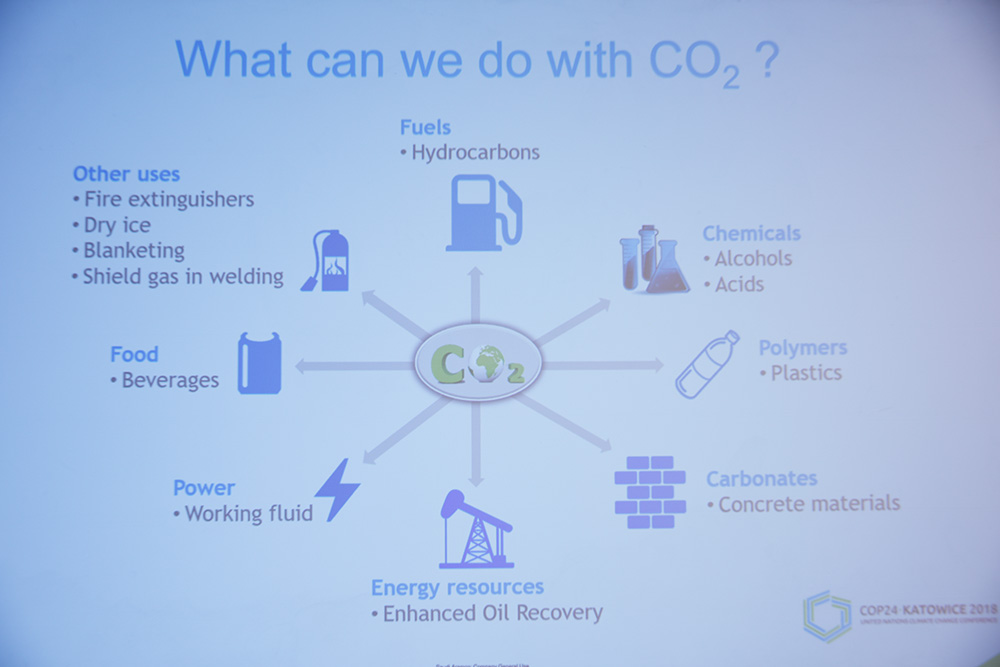
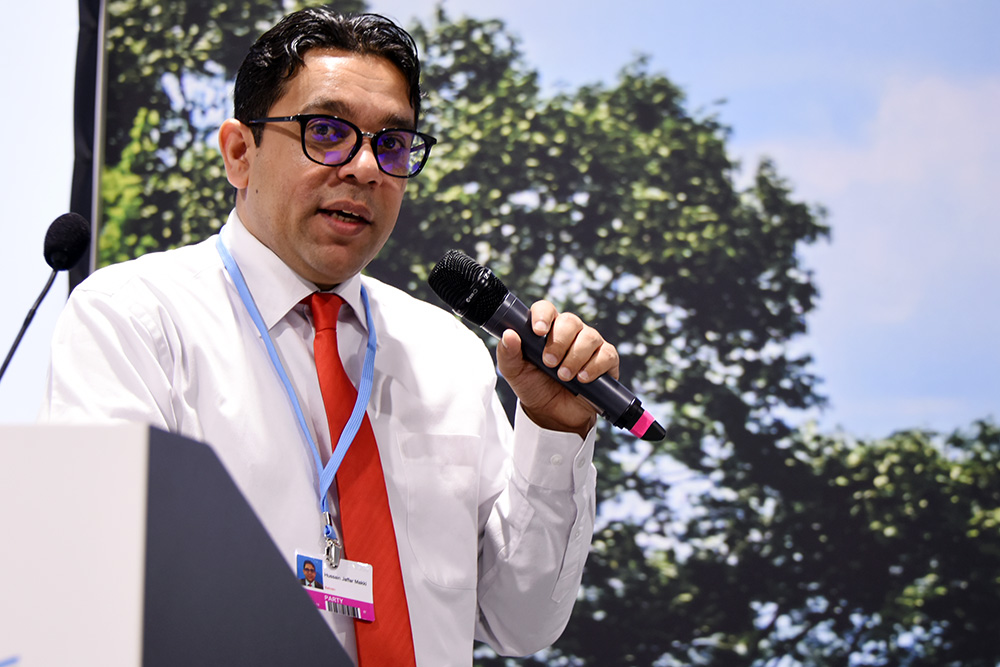
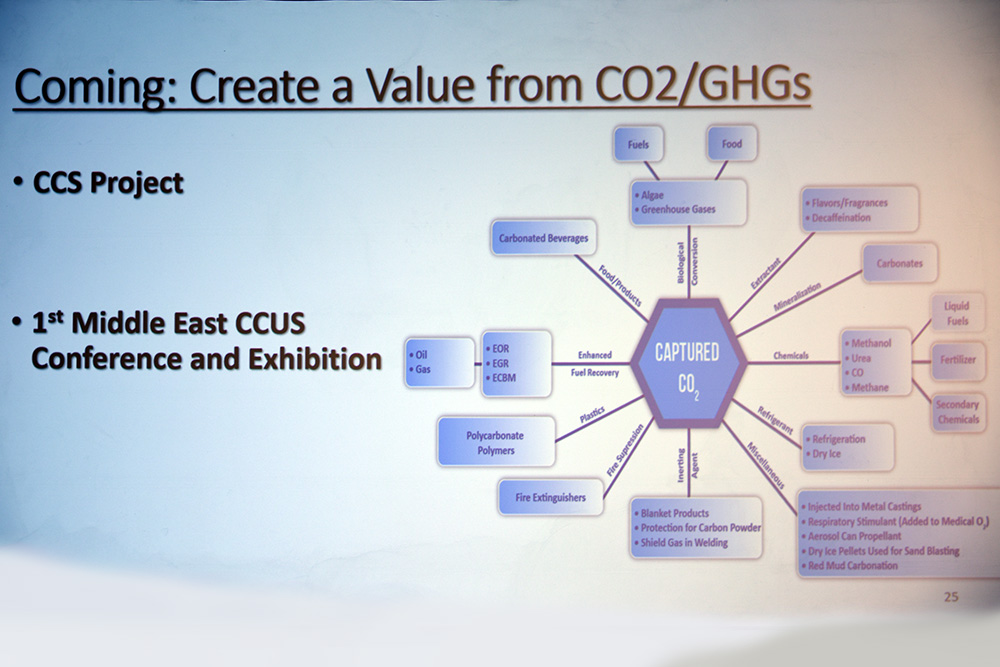
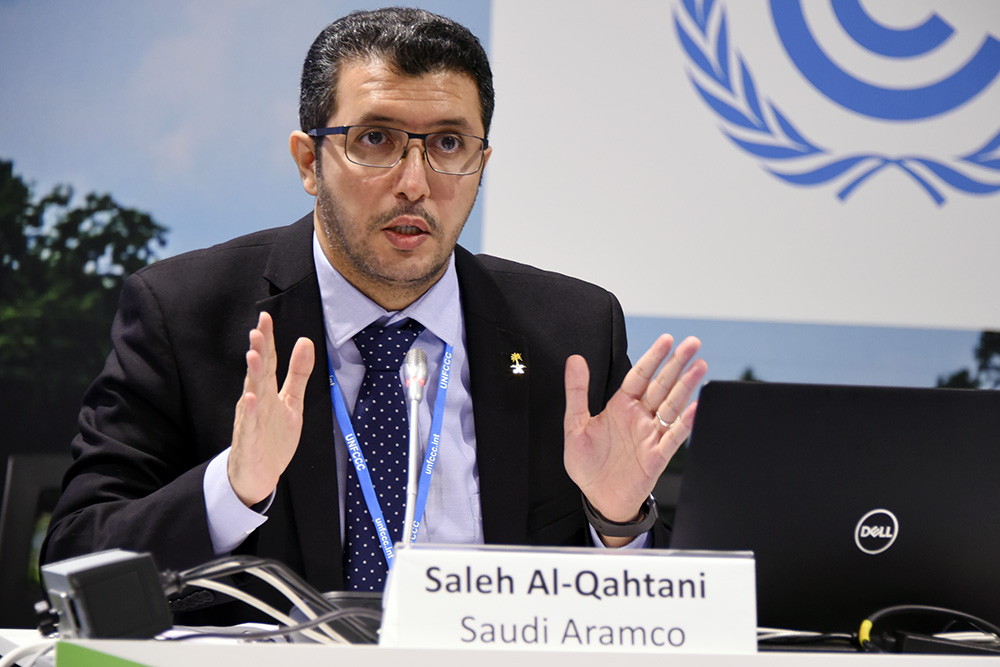
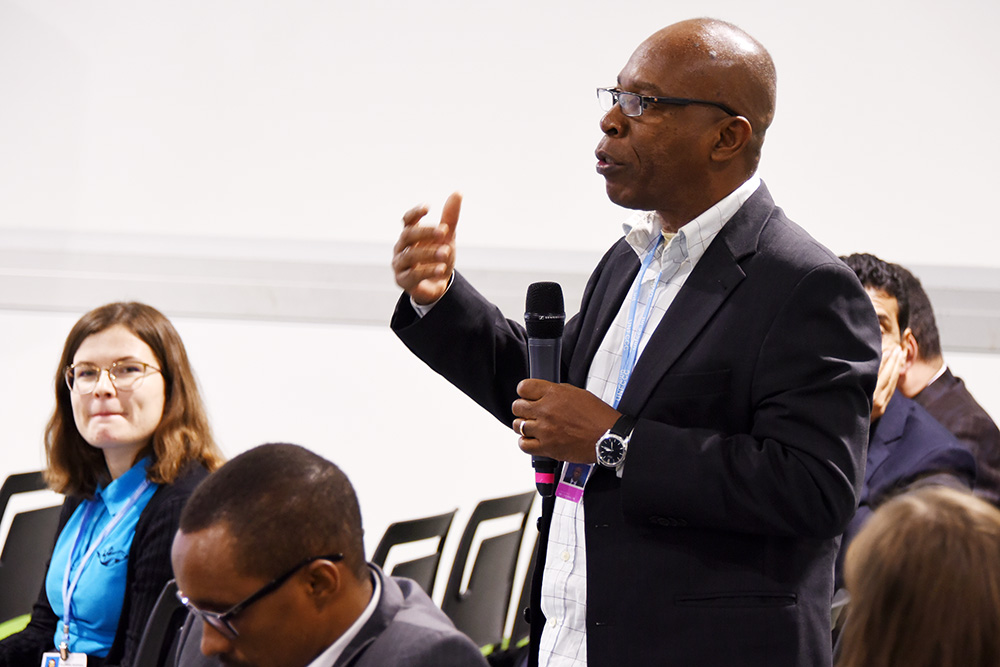
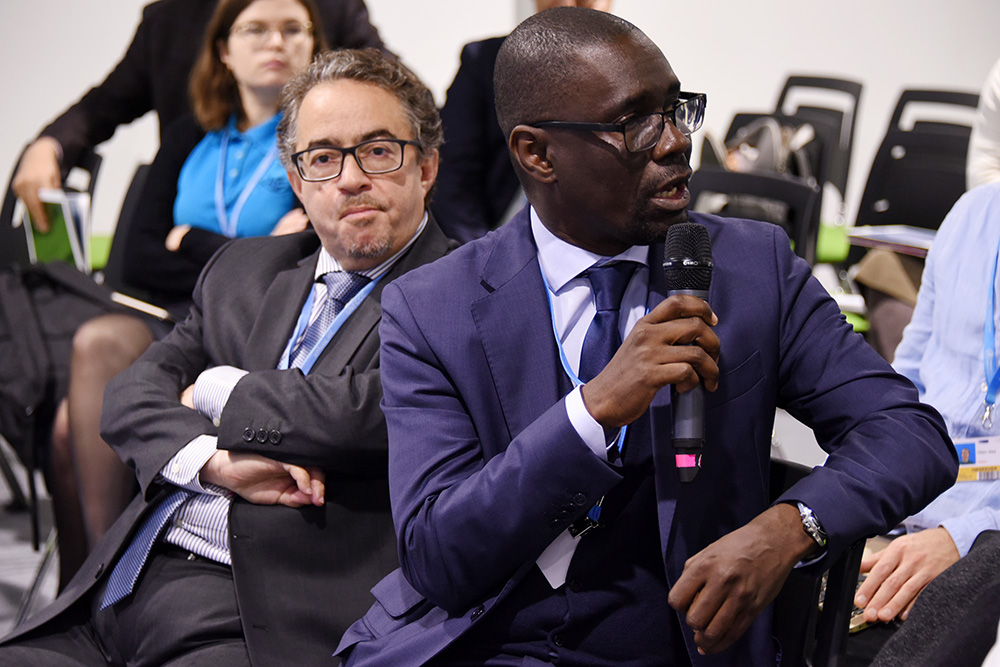
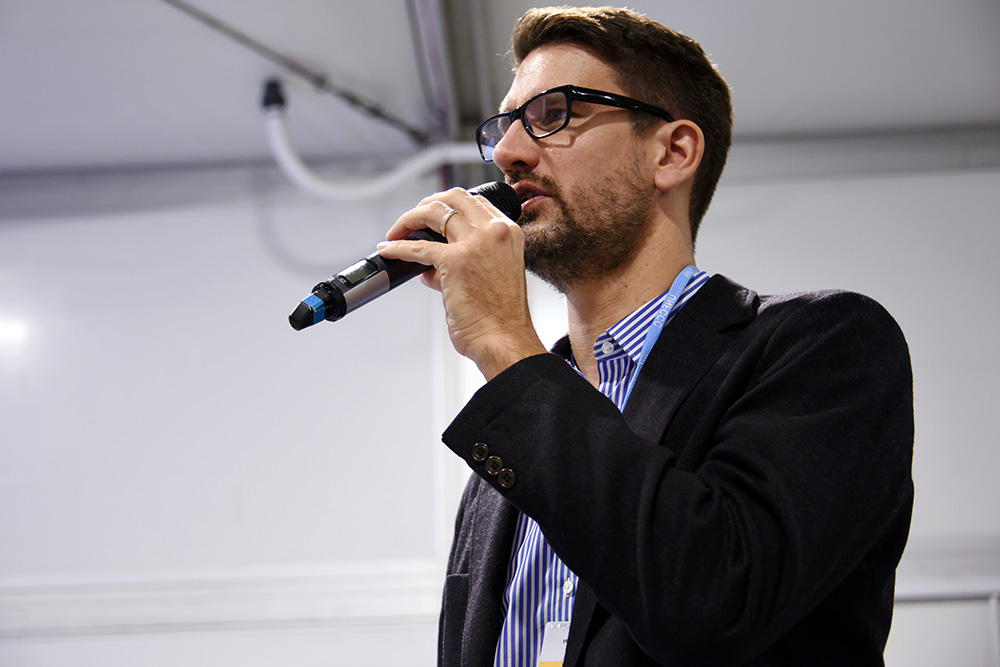
Participants during the discussion
